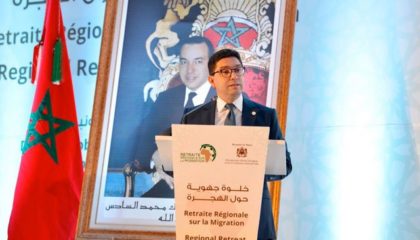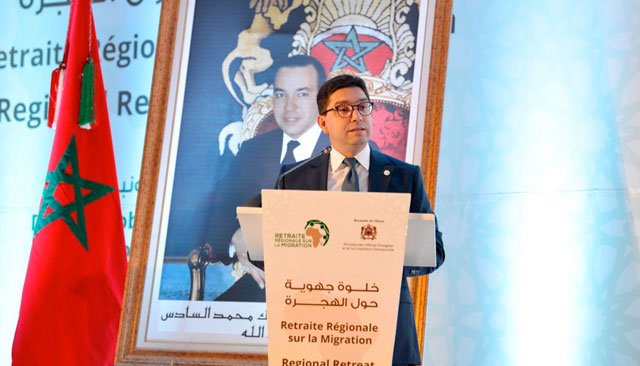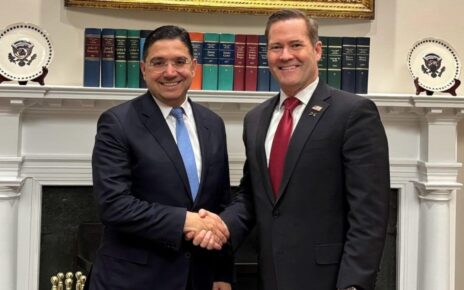 By holding a “Regional Retreat on Migration,” Morocco is spearheading initiatives aiming at reaching a paradigm change in how migration is tackled on the continent. The guiding line is to depart from the security approach in addressing migration issues in favor of a humanistic approach focusing on opportunities and common management.
By holding a “Regional Retreat on Migration,” Morocco is spearheading initiatives aiming at reaching a paradigm change in how migration is tackled on the continent. The guiding line is to depart from the security approach in addressing migration issues in favor of a humanistic approach focusing on opportunities and common management.
The event, held in Skhirate, in Rabat’s outskirts, aims at garnering support for the adoption of a common African stance on the “Global Compact for Safe, Orderly and Regular Migration,” to be adopted in 2018.
The meeting is part of the follow up of a paper submitted by King Mohammed VI, in his quality as the African leader who was put in charge of the question of migration, to the AU’s presidency, laying out a common African Vision on migration and the related stakes and challenges.
Speaking at the opening of the regional retreat Monday, Foreign Minister Nasser Bourita said that “Africa should speak with one voice” in order to lay out its agenda on migration issues.
“The establishment of a common governance of migration is not an option”, the minister said, noting that this “African retreat on migration” is an “important” step in a sequence that began last March and will continue until the next African Union (AU) Summit in January 2018.
Bourita recalled that, at the request of Guinea’s President and acting Chairman of the AU Alpha Condé, King Mohammed VI had agreed to coordinate the action of the AU on the “structuring, transversal and very important theme of migration”. He added that this choice “is first and foremost a recognition of the Sovereign’s personal commitment and profound conviction in favor of the emergence of the African continent as an actor of peace, stability and development.”
This choice also reflects the relevance of the national immigration and asylum policy launched in 2013, which is both “humanistic, global, respectful of human rights, and concerned with the implementation of shared responsibility and renewed multilateral cooperation,” Bourita said. “This choice finally gives concrete expression to the desire to promote a calm and peaceful debate, which does not present migration as a threat to tame, or a challenge to take up, but as an opportunity to seize.”
The preliminary note submitted by King Mohammed to the AU’s presidency outlines the steps that should be taken to tackle migration notably through adopting national policies, improving
sub-regional coordination, and harnessing continental and international efforts to ensure an adequate management of migration.
The document urges African countries to combat trafficking and to create conditions propitious for the integration of migrants.
With regard to international partnership, the paper stresses the need for African countries and the African Union to assess and respond to the challenges and opportunities of migration. As a global issue, migration must be the subject of partnerships in which Africa will have to play its role fully.
At the domestic level, Morocco was one of the first countries of the South to adopt a genuine solidarity-based policy regarding sub-Saharan migrants.
The policy, rooted in humanitarian values, was launched in 2014 and benefited notably Sub-Saharans who make the bulk of migrants within Morocco.
And so far, nearly 20,000 migrants submitted to Moroccan authorities their requests to gain residency cards as part of the second phase of a regularization campaign that was launched last December upon directives from King Mohammed VI after the success of the first phase that saw 25,000 migrants gain residency status.



